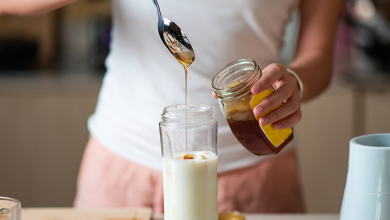FITT Principle: The Most Effective Way to Structure Your Workouts

The hardest part of exercising isn’t usually the exercise itself. It’s knowing how to get started. It can be intimidating to figure out what to do, how long, and how often. Creating a safe, effective exercise routine that you can actually stick to takes some strategy. Enter: the FITT principle.
Also known as the FITT formula, this is a set of simple guidelines you can follow to design a workout program tailored to your goals, fitness experience, and lifestyle.
What Is The FITT Principle?
The FITT principle stands for frequency, intensity, time, and type, which are key variables you can adjust to help you get the results you want from a workout — all in a timely manner with limited risk of burning out or getting hurt.
“These variables work together to equal your total exercise workload,” says Cody Braun, CSCS. Learning how to effectively modify the four components of the FITT principle can help you set and reach attainable fitness goals and prevent injury, he explains.
Here’s a deeper dive into how each part of the formula works to create the best workout program for you.
1. Frequency

Frequency simply refers to the number of days in your workout routine, and it’s the foundation of your workout program. “This is where you design the layout of when to train each muscle group and when to take rest days,” Braun says.
Do you want to do a five-day routine, or can you only commit to three days?
Your workout frequency will ultimately depend on your schedule and goals, but the American College of Sports Medicine (ACSM) recommends a minimum of three days a week.
2. Intensity

Intensity is an indicator of how hard you’re working — in other words, whether you’re breezing through a workout or barely hanging on.
When you’re trying to figure out what level of intensity you should aim for, one thing to consider is your goals. If you want to torch fat and develop muscle, high intensity interval training (HIIT) can be great option.
If you want to improve your cardiovascular endurance, turn to moderate-intensity steady-state activities like running and cycling. It all depends on what you’re striving to achieve.
A second aspect to consider is your fitness level. For example, if you’re brand new to fitness, a HIIT workout might be too much and render you too tired or sore the next day. Getting too beat up from your previous workout can be discouraging, and it might lead you to give up on your program. It might also cause injury if your body is not ready for that level of intensity.
It’s OK to start with workouts that aren’t as rigorous at first. Then, as you start to improve your fitness level, you can increase the intensity little by little.
How to gauge intensity
To evaluate intensity, Mike Donavanik, C.S.C.S, says you can use rate of perceived exertion (RPE) to determine how much effort you’re putting forth. Based on your max heart rate in a workout, the RPE scale allows you to associate a number with workout intensity. The lower the number, the easier the workout.
Another option to gauge the intensity of a workout is the “talk test.” If you can barely mutter a word while you exercise, then you’re likely reaching your max intensity. But if you can easily maintain a conversation, then the workout is on the lighter side of the scale.
3. Time

This part of the FITT acronym refers to the duration of each workout session. Are you crunched on time and can only squeeze in 20-minute workouts? Or do you have the leisure of spending a full hour at the gym?
Whatever workout duration you choose, keep in mind that there’s an inverse relationship between time and intensity during exercise, Braun says. “When the intensity is higher, the [time] will be lower, and vice versa,” he explains.
That means you can still make those 20-minute routines work just as well as the longer ones: the intensity just needs to be at full force. If you want to follow the ACSM’s recommendation, they suggest doing five days of moderate-intensity exercise per week to total a minimum of 150 minutes, or three days a week of high-intensity exercise to total a minimum of 75 minutes.
4. Type

Type refers to the specific workout activity: running, weightlifting, kickboxing, etc. “Not all workouts are equal,” Braun says, which is why it’s important to choose the exercise that will propel you toward your goals.
If you want to run a marathon, you should focus on activities that improve your cardiovascular endurance. Maybe you want something that’s gentle on your joints, so you opt for a low-impact activity like swimming.
Or perhaps you want to lose fat. For this goal, Braun suggests focusing on workouts that burn calories and build muscle, like a healthy combination of cardio and resistance training.
Whether you’re creating a workout plan yourself or trying to choose between workout programs that have already been designed, the FIIT principle can help make the overwhelming process of getting in shape more manageable.
By breaking the process down into four parts, “it allows you to get a better idea of what your workout routine looks like, how you can tweak it to meet your goals, or where certain activities may be lacking,” Donavanik says.
When you start a program, check in with yourself every couple of weeks to assess your progress and see how you feel. “If you start noticing a plateau, it’s probably time to change one of the variables,” Braun says.
Switching just one to two variables every six to eight weeks gives you time to master a routine while still maintaining progress.
“For example: frequency, time, and type could all stay the same, but you might want to increase the intensity of your workouts — that might be heavier weights, more reps, or faster run speeds,” Donavanik explains.
On the other hand, if you feel perpetually sore or fatigued, Braun recommends lowering a variable to avoid injury and burnout. This might happen, say, if you’re exercising five days a week at max intensity for 50 minutes.
In this case, you might dial back to four days of exercise, and evaluate how you feel then. Or, maybe you stick to the same number of days, but you shorten each workout by 15 minutes.
By tweaking the components of the FITT principle, you can adjust a program to fit your needs and reach your goals in an efficient manner without getting hurt.
Struggling to put a workout routine together? Leave the programming to the experts and try one of BODi’s workout programs, which all differ in program length, workout duration, intensity, and exercise type. From weightlifting and HIIT to barre and yoga, we provide dozens of programs that can fit your unique goals and preferences.



